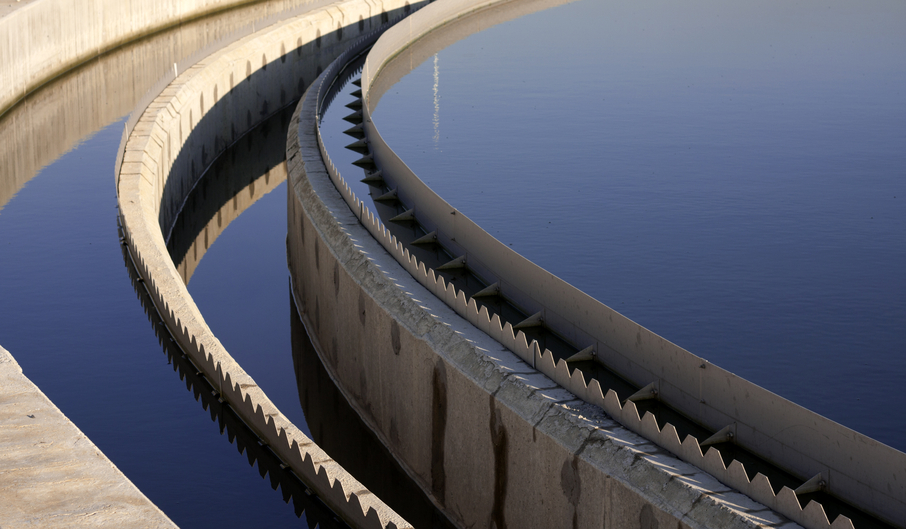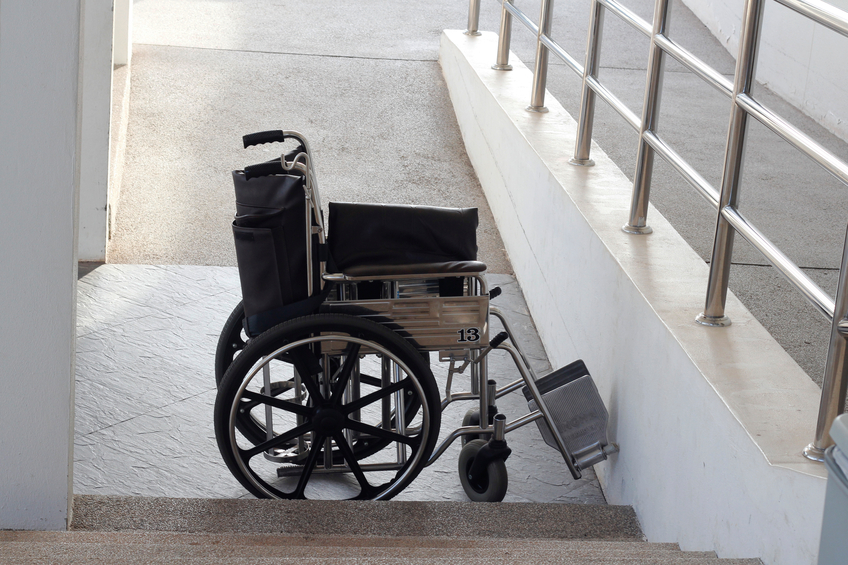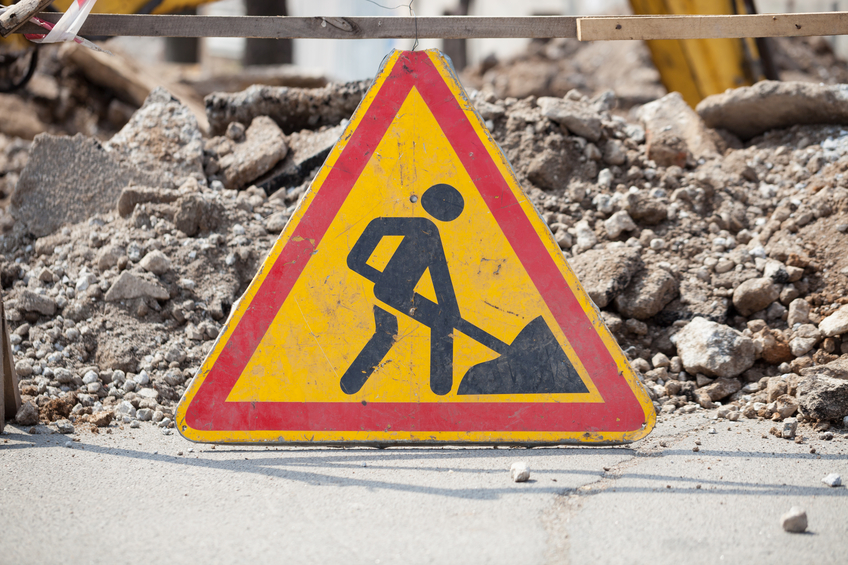Louisiana Wastewater, ADA and Ethics 15 PDH Discount Package 3
Management of Onsite and Clustered Wastewater Treatment Systems (C07-013)
Pressure and Gravity Sewers (C02-068)
ADA Update: A Primer for Small Business (A01-004)
Ergonomic Guidelines for Manual Material Handling (Y03-003)
Free Speech vs. Regulation of Professional Engineers (LE1-009)

This online engineering PDH course presents the advantages of composting toilets over other systems such as latrines, water-sealed toilets and septic systems. In addition, this course discusses the construction process and the type of materials for composting toilets used in Tonga, Kiribati and Fiji.
In places lacking modern toilets and sanitation, latrines are used as temporary storage for human waste. The latrines are often emptied into the nearest body of water, which may also serve as a water supply. Composting toilets can provide a sanitary method of waste treatment in areas without running water or electricity. One of their greatest advantages is that they can be built anywhere, and usually for low up-front costs, making them excellent choices in rural or remote areas and undeveloped areas.
This 1 PDH online course is applicable to civil and mechanical engineers, aid workers and others involved in the planning or construction of projects in areas with limited sanitation infrastructure.
This PE continuing education course is intended to provide you with the following specific knowledge and skills:
- Familiarizing with the steps in constructing foundation slabs, chambers, ET beds, toilet house floor slab, false door, and access door
- Understanding the operation and maintenance of Composting Toilet
- Familiarizing with technical drawings of Composting Toilet Construction
- Learning about the technical specifications of Composting Toilet Construction
Upon successful completion of the quiz, print your Certificate of Completion instantly. (Note: if you are paying by check or money order, you will be able to print it after we receive your payment.) For your convenience, we will also email it to you. Please note that you can log in to your account at any time to access and print your Certificate of Completion.

This online engineering PDH course provides an overview of key considerations for developing or enhancing management programs for decentralized wastewater treatment systems.
One in every four households in the United States relies on an individual onsite or small cluster system to treat wastewater. In far too many cases, these systems are installed and largely forgotten – until problems arise. On the other hand, EPA concluded in its 1997 Report to Congress that “adequately managed decentralized wastewater systems are a cost-effective and long-term option for meeting public health and water quality goals, particularly in less densely populated areas.”
The key to achieving effective performance of decentralized sewage treatment systems from the simplest “box and rocks” septic tank and drainfield system to the most complex treatment and dispersal units; is an effective management strategy. This strategy must consider several critical elements such as planning, site conditions, risk factors, system design, and operation and maintenance, all of which comprise a management program.
This 7 PDH online course is applicable to civil, environmental and chemical engineers, sanitarians, and others seeking an understanding of Management of Onsite and Clustered Wastewater Treatment Systems.
This PE continuing education course is intended to provide you with the following specific knowledge and skills:
- Introduction to the management of onsite and clustered wastewater treatment systems
- Relevant of the management guidelines to other water programs
- Description of management models
- How to apply the management models
Upon successful completion of the quiz, print your Certificate of Completion instantly. (Note: if you are paying by check or money order, you will be able to print it after we receive your payment.) For your convenience, we will also email it to you. Please note that you can log in to your account at any time to access and print your Certificate of Completion.

This online engineering courses is divided in to two parts: The first part discusses sewer systems that use pressure to deliver sewage to a treatment system. The second part discusses small diameter gravity sewers (SDGS) which convey effluent by gravity from a tank to a treatment location. Each part presents an overall description of the relevant topic along with the advantages and disadvantages of each system, design criteria, performance data, operation and maintenance and insights about cost related data.
Alternative wastewater collection systems can be cost effective for homes in areas where traditional collection systems are too expensive to install and operate. Pressure and gravity sewers are used in sparsely populated or suburban areas in which conventional collection systems would be expensive. These systems generally use smaller diameter pipes with a slight slope or follow the surface contour of the land; thereby, reducing excavation and construction costs. These systems convey effluent by gravity from an interceptor tank (or septic tank) to a centralized treatment location or pump station for transfer to another collection system or treatment facility.
This 2 PDH online course is applicable to civil, mechanical and environmental engineers, as well as design and construction personnel involved with the planning, design and installation of low pressure and small diameter gravity sewer systems.
This PE continuing education course is intended to provide you with the following specific knowledge and skills:
- Learning about the common types of alternative wastewater collection systems
- Understanding the advantages and disadvantages of each type of system
- Understanding the applicability of each system
- Familiarizing with the design criteria, performance data and operation and maintenance processes of each system
- Ability to compare conventional wastewater collection systems to alternative wastewater systems
Upon successful completion of the quiz, print your Certificate of Completion instantly. (Note: if you are paying by check or money order, you will be able to print it after we receive your payment.) For your convenience, we will also email it to you. Please note that you can log in to your account at any time to access and print your Certificate of Completion.

This online engineering PDH course provides general guidance to help business owners understand how to comply with the Department of Justice’s Americans with Disability Act (ADA) and the 2010 Standards, the design standards for accessible buildings.
The ADA applies to both the built environment and to policies and procedures that affect how a business provides goods and services to its customers. Using this guidance, small business owners or managers can ensure that they will not unintentionally exclude people with disabilities and will know when they need to remove barriers in existing facilities.
This 1 PDH online course is intended for engineers involved in the planning, design or operation of a small business.
This PE continuing education course is intended to provide you with the following specific knowledge and skills:
- Understanding who is covered by the ADA
- Understanding the general non-discrimination requirements
- Learning how to make the built environment accessible
- Knowing how to assess a facility
- Training staff on ADA requirements
In this professional engineering CEU course, you need to review the course document titled, “ADA Update: A Primer for Small Business,” March, 2011.
Once you complete your course review, you need to take a multiple-choice quiz consisting of ten (10) questions to earn 1 PDH credit. The quiz will be based on this ADA publication.
Upon successful completion of the quiz, print your Certificate of Completion instantly. (Note: if you are paying by check or money order, you will be able to print it after we receive your payment.) For your convenience, we will also email it to you. Please note that you can log in to your account at any time to access and print your Certificate of Completion.

This online engineering PDH course provides information on effective ergonomic interventions that help lower the physical demands of manual material handling (MMH) work.
Manual material handling work contributes to a large percentage of over half a million cases of musculoskeletal disorders reported annually in the United States. Musculoskeletal disorders often involve strains and sprains to the lower back, shoulders, and upper limbs. They can result in protracted pain, disability, medical treatment, and financial stress for those afflicted with them.
Effective ergonomic interventions can lower the physical demands of MMH work tasks, thereby lowering the incidence and severity of the musculoskeletal injuries they can cause. Their potential for reducing injury-related costs alone make ergonomic interventions a useful tool for improving a company’s productivity, product quality, and overall business competitiveness.
This 3 PDH online course is applicable to engineers, managers and supervisors who are interested in learning more about ergonomic interventions that reduce the physical demands of manual material handling work.
This PE continuing education course is intended to provide you with the following specific knowledge and skills:
- Familiarizing with the basics of manual material handling
- Understanding the importance of improving the workplace
- Understanding the conditions associated with the development of injuries in manual material handling tasks
- Learning about the different types of ergonomic improvements
- Knowing easier ways to manually lift, lower, fill, or empty containers
- Exploring alternatives to the manual handling of individual containers
Upon successful completion of the quiz, print your Certificate of Completion instantly. (Note: if you are paying by check or money order, you will be able to print it after we receive your payment.) For your convenience, we will also email it to you. Please note that you can log in to your account at any time to access and print your Certificate of Completion.

This online engineering PDH course will establish the relationship between the actions of a licensing board for professional engineers and the Constitutional right of free speech.
This course discusses the background and findings of a legal case that arose when a state licensing board for professional engineers attempted to restrict the right of an engineer from speaking about a public safety issue. Actual legal documents and associated correspondence are discussed, and their implications analyzed.
The 1 PDH online course is intended for all registered professional engineers wanting to know about the relation between constitutionally protected free speech and the powers of a licensing board for professional engineers.
This PE continuing education course is intended to provide you with the following specific knowledge and skills:
- Understanding the value of free speech in discovering the best solution to technical problems
- Realizing the difference between protected and unprotected speech
- Knowing an example in which the actions of a PE licensing board was limited by the Constitutional right of free speech
- Familiarizing with the meaning of a board letter that announces the opening of an investigation
- Understanding the meaning and use of a Notice to Impose a Civil Penalty
- Understanding the significance of working outside the context of an employment or contractual relationship
Upon successful completion of the quiz, print your Certificate of Completion instantly. (Note: if you are paying by check or money order, you will be able to print it after we receive your payment.) For your convenience, we will also email it to you. Please note that you can log in to your account at any time to access and print your Certificate of Completion.